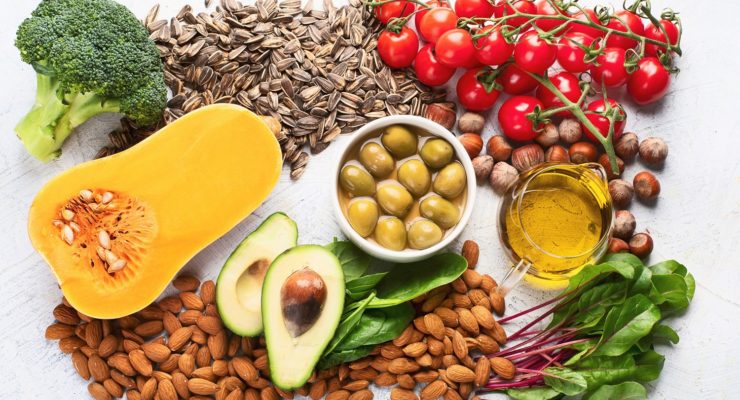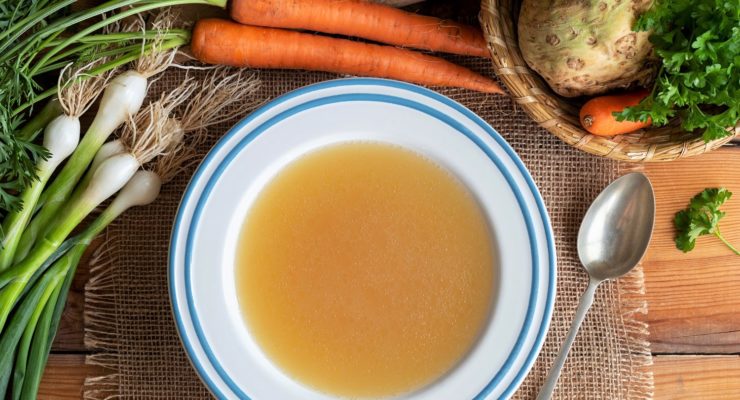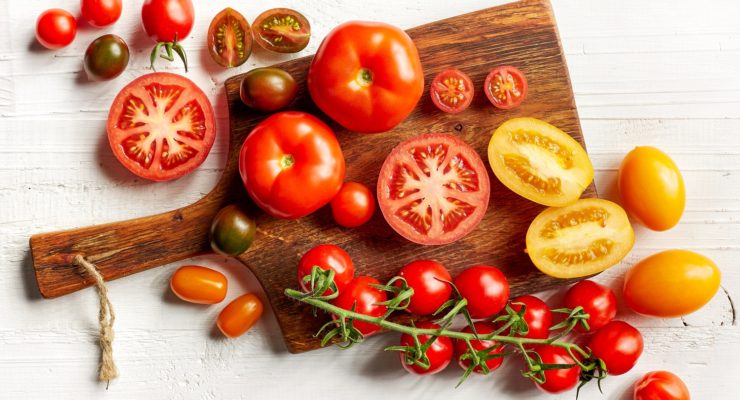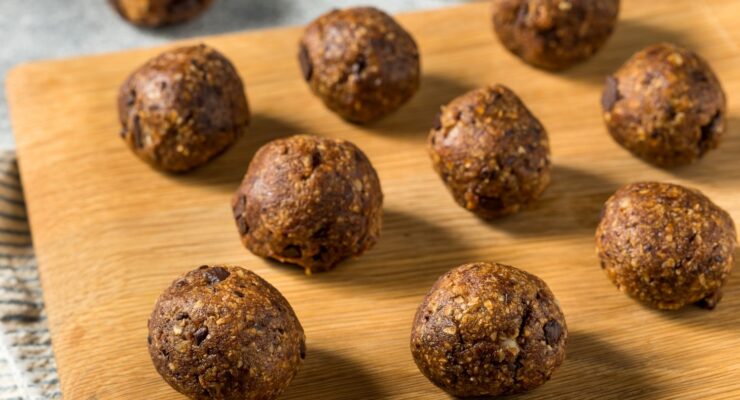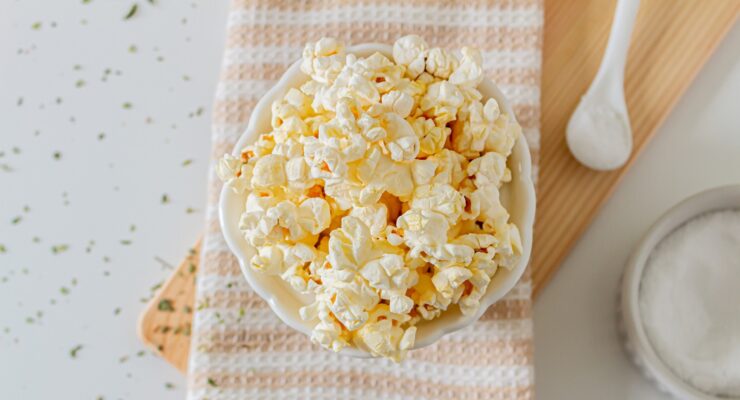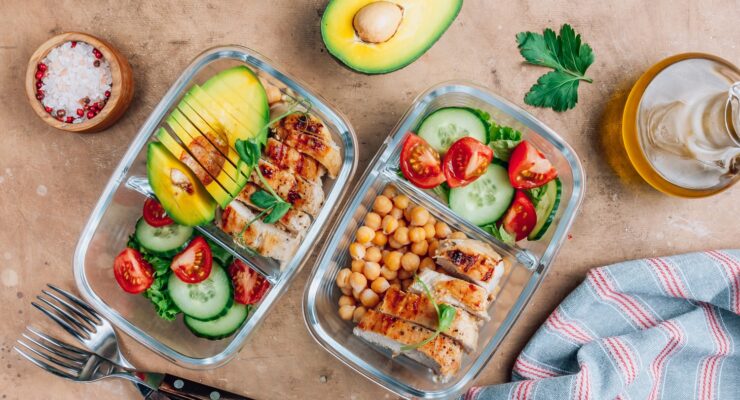10 Collagen Boosting Foods
Article posted in: Diet & Nutrition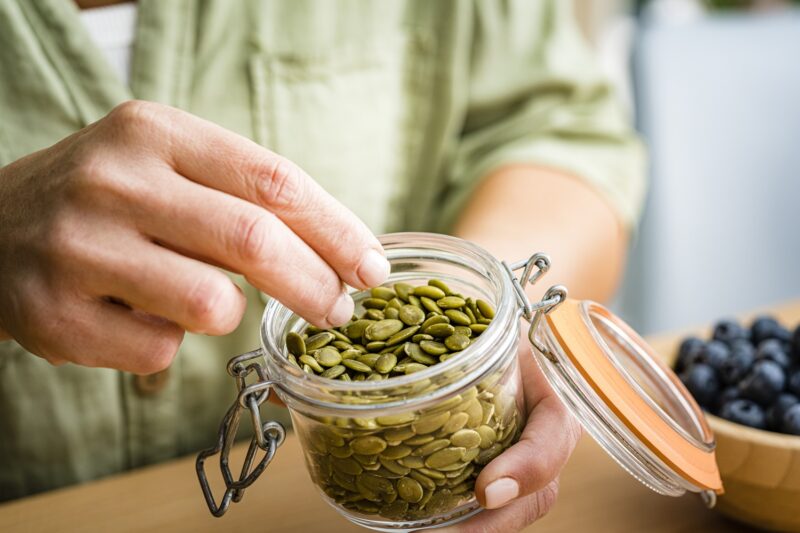
Are you curious about collagen? It’s a term you may have come across on health and beauty product packages or in related advertisements. But what exactly is collagen, why is it important, and how can we ensure our bodies have enough of it? Here’s everything you need to know about collagen, its significance for your health and well-being, and how to incorporate more collagen boosting foods into your diet.
What is Collagen?
According to Cleveland Clinic, Collagen is the most abundant type of protein in your body, making up about 30 percent of the total protein. Your skin, muscles, tendons, bones and other connective tissues are built from and maintained with collagen. It’s a key component of your organs and blood vessels, too.
Like all proteins, collagen is made up of different kinds of amino acids. Proline, glycine and hydroxyproline are the main amino acids in collagen. Your body uses those amino acids, along with vitamin C, zinc and copper, to make a steady supply of collagen.
Collagen and Aging
Your collagen level naturally declines as you age. Smoking, excessive exposure to the ultraviolet rays of the sun (or tanning bed), and eating a lot of refined sugar and other simple carbohydrates are all linked to diminishing collagen levels. When your body doesn’t have enough collagen, research shows that your skin may become wrinkled. Your joints may also feel stiff or even ache.
Collagen Boosting Foods
While more research is needed to determine the full effectiveness of collagen supplements, maintaining a balanced diet with collagen boosting foods can naturally support your body’s collagen production.
Nourish your body with foods rich in nutrients that promote collagen synthesis. Key nutrients for collagen production include:
- Amino acids: proline and glycine
- Vitamin C
- Zinc
- Copper
Incorporate these 10 nutrient-rich, collage boosting foods into your diet to naturally enhance collagen production!
1. Turkey Breast
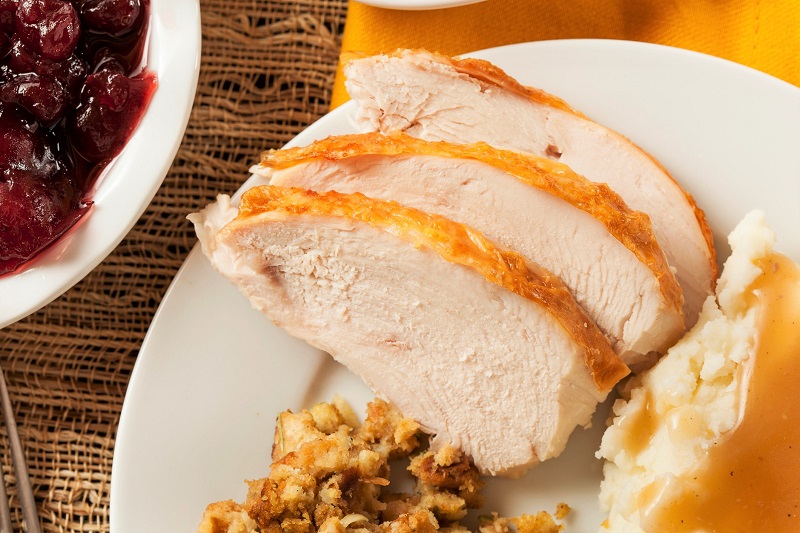
Naturally high in protein and low in saturated fats, turkey breast supplies you with the amino acid glycine needed to make collagen.
Plain, roasted turkey breast is best. If you’re buying sliced turkey at the deli counter, ask for the option with the least amount of sodium. Our Lean Turkey Meatloaf recipe gives you all the flavor and satisfaction of classic comfort food with fewer calories and fats than the standard version.
2. Fish


Fish is rich in the amino acid proline. White, flaky fish varieties have a mild taste that blends well with many ingredients. They also tend to be among the most affordably priced types of seafood. Tasty Tilapia Tacos are a fun way to enjoy the healthy benefits of the fish that the whole family will love.
3. Eggs Whites


Proline, one of the key amino acids needed to make collagen, is especially abundant in egg whites. Check out this mess-free way to separate an egg for simple instructions on getting just the whites. Then try this delicious recipe for Roasted Red Pepper and Goat Cheese Egg White Bites!
4. Greek Yogurt


Dairy products, including milk and yogurt, have lots of protein, including the amino acids proline and glycine used for collagen. Greek-style yogurt has more protein and less sugar than the standard type. It also has a creamier consistency, which makes it best for smoothies and a healthy substitute for sour cream in many recipes.
Always choose the plain variety of yogurt because the flavored types are laden with excess sugar. This Spicy Greek Yogurt Dip recipe is a fun way to enjoy eating raw vegetables or whole-grain crackers.
5. Peanuts


Along with the amino acids, peanuts also come with a healthy dose of zinc, a mineral that plays a key role in making collagen. When shopping for peanuts, stick with raw or dry-roasted varieties, choose low-sodium or unsalted options, and avoid honey-roasted varieties with a lot of added sugar. The Nutrisystem Chewy Peanut Bar has a chewy center made with real peanuts and peanut butter and a rich, chocolaty coating.
6. Pumpkin Seeds
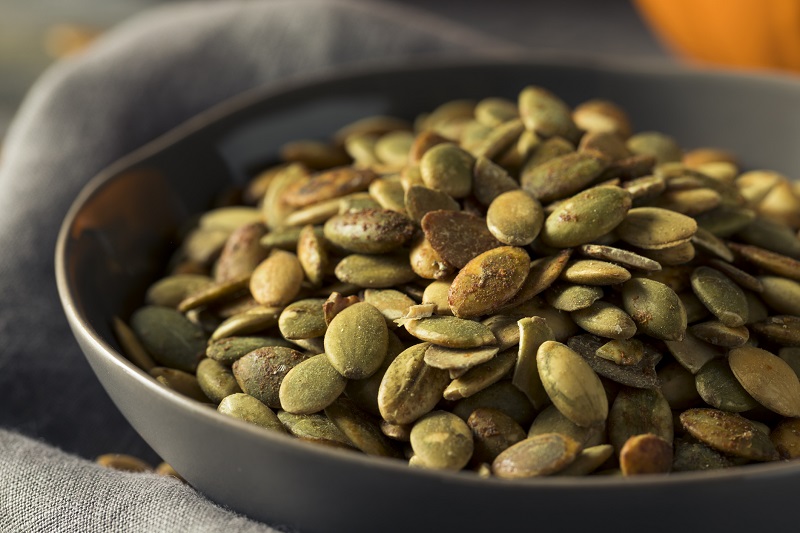

Your body needs plenty of zinc and copper to transform amino acids into collagen. Seeds are among the best foods for those minerals.
Pumpkin seeds can be roasted and used as a salad topping, in baked goods or as a snack you eat by hand. Our Sweet and Spicy Pumpkin Seeds recipe features the complementary flavors of cayenne pepper and chili powder with a hint of honey.
7. Mushrooms
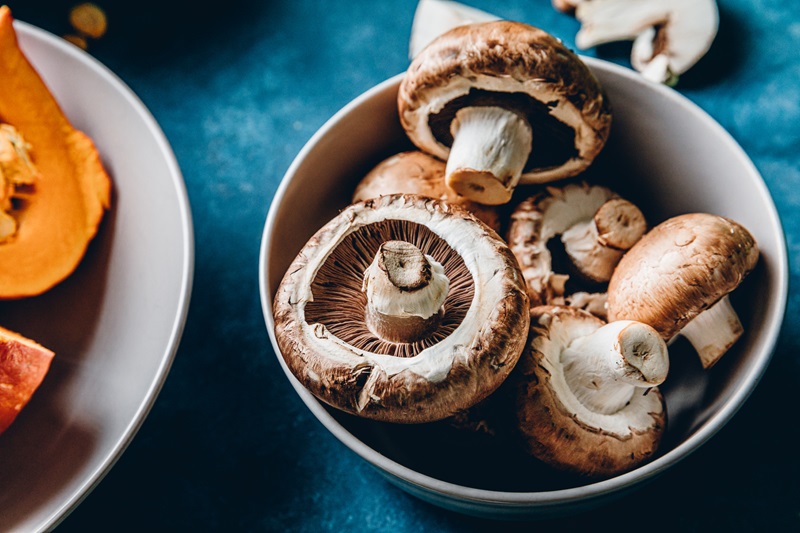

The many different varieties of mushrooms are all high in amino acids and fiber. They also provide you with copper to aid in collagen production. If you don’t buy fresh mushrooms because they spoil before you can eat them all, you may find them in the freezer section of the grocery so you can use them as needed. Cauliflower Risotto with Mushrooms and Spinach makes for a light meal or hearty side dish to a PowerFuel like chicken breast.
8. Asparagus
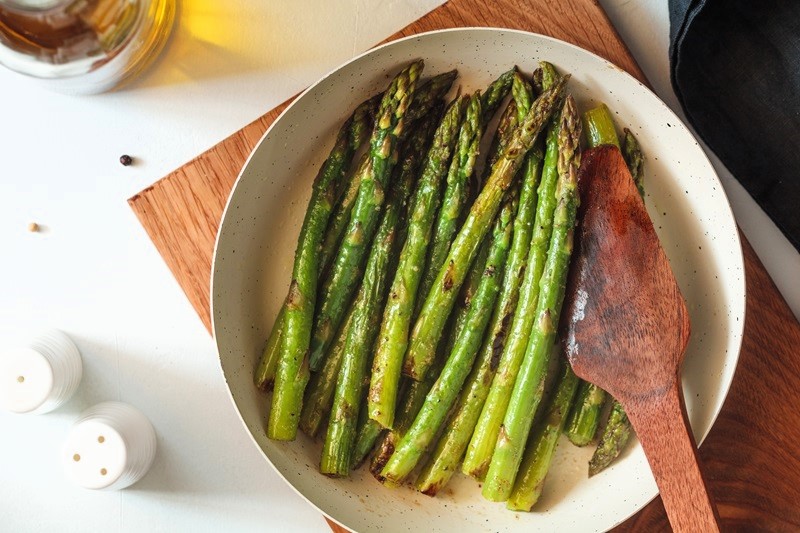

While the slender green spears do not have complete protein, they are rich in the collagen-boosting amino acid proline. You also get vitamin C that helps build collagen and protects your immune system.
You can steam or roast asparagus to eat warm or you can blanch them (in hot water and then icy cold water) to make them tender yet still firm enough for dipping. This Grilled Asparagus Caesar Salad recipe is a fresh, healthy take on a favorite side dish that pairs the spears with parmesan cheese, garlic and zesty seasonings.
9. Citrus Fruits


Citrus fruits like oranges are rich in vitamin C, which is an important part of the collagen production process. Enjoy fresh fruit on its own or in this Orange Cream Smoothie recipe!
10. Red Meat


Red meat provides several nutrients needed for the synthesis of collagen, including zinc and the amino acids proline and glycine. Look for lean cuts of meat, such as round steaks and roasts (eye of round, top or bottom round, round tip), sirloin, flank steak, filet mignon, chuck roasts, London broil and tenderloin. Learn how to cook up a delicious steak with our recipes for Marinated and Baked Beef Flank Steak or Grilled Filet Mignon!



